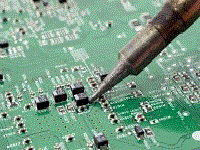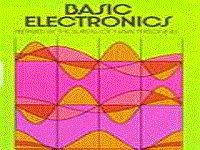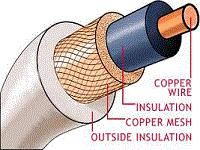RC Coupling
The most commonly used coupling in amplifiers is RC coupling. An RC coupling network is shown in the illustration.
The network of R1, R2, and C1 enclosed in the dashed lines of the figure is the coupling-network. You may notice that the circuitry for Q1 and Q2 is incomplete. That is intentional so that you can concentrate on the coupling network.
R1 acts as a load resistor for Q1 (the first stage) and develops the output signal of that stage. Do you remember how a capacitor reacts to ac and dc? The capacitor, C1, "blocks" the dc of Q1's collector, but "passes" the ac output signal. R2 develops this passed, or coupled, signal as the input signal to Q2 (the
second stage).
This arrangement allows the coupling of the signal while it isolates the biasing of each stage. This solves many of the problems associated with direct coupling.

RC-coupled transistor amplifier.
RC coupling does have a few disadvantages. The resistors use dc power and so the amplifier has low efficiency. The capacitor tends to limit the low-frequency response of the amplifier and the amplifying device itself limits the high-frequency response.
For audio amplifiers this is usually not a problem; there are techniques for overcoming these frequency limitations.
Before you move on to the next type of coupling, consider the capacitor in the RC coupling. You probably remember that capacitive reactance (X C) is determined by the following formula:

This explains why the low frequencies are limited by the capacitor. As frequency decreases, XC increases. This causes more of the signal to be "lost" in the capacitor.
The formula for XC also shows that the value of capacitance (C) should be relatively high so that capacitive reactance (XC) can be kept as low as possible. So, when a capacitor is used as a coupling element, the capacitance should be relatively high so that it will couple the entire signal well and not reduce or distort the signal.
Become a loyal member to our site. It's free!
Site Search


Translate your page
If English is not your first language you can Translate the text on this page to any one of the languages found in the drop down menu. Select your language from the list for an instant translation.
Looking for something unique for your project? Choose from the drop down menu for quick access to the item you seek.
Related Pages
Become an Electronics Technician
Convert most anything with this utility
Find your wire and cable here!
Sponsored Sites


If you like this site please pay it forward. Donations are welcome.












